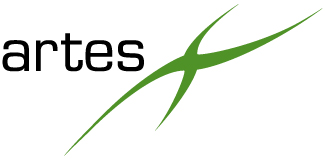By ARTES Biotechnology…
ARTES White Paper outlines high-yield production process for secreted and active Invertase
Introduction
This new White Paper from German-based microbial process development and cell line development specialist ARTES Biotechnology (ARTES) describes a prototype industrial manufacturing process for the important enzyme Invertase, which is key to production of more stable sugars.
Authors
Manfred Suckow, Volker Jenzelewski, Michael Piontek
Abstract
Sugar plays an eminent role in today’s society, providing some 20% of the total energy needs of the population in industrialized countries, with sugar intake averaging close to 38 kg per European in 2015/2016.
Most industrially produced sugar is derived from sucrose, the disaccharide found in many plants, principally sugar beet and cane. Sucrose can also be converted to its monosaccharides, glucose and fructose, a process for which the SUC2 encoded yeast enzyme Invertase (EC 3.2.1.26; ß-fructofuranosidase) is needed. Sugar has many applications in the life sciences and food industries, for example in the production of stable sweet syrups that are less likely to crystallize than those derived from pure sucrose or in the production of ethanol.
ARTES Biotechnology’s White Paper describes a study that examines recombinant production as a source of stable Invertase for industrial use in a more robust, reliable and commercially affordable process.
Building on previous studies by Rodriguez et al. (1996) and Mayer et al (1999), the ARTES team focused on a process using ARTES Biotechnology´s proprietary expression system based on the methylotrophic yeast Hansenula polymorpha.
The team achieved an estimated Invertase concentration of about 200 mg/l at a cell density of approx. O.D.600nm of 30 obtained in the 3 ml batch culture. In volumetric productivity terms, this was some 20 times the result achieved in the Rodriquez study. ARTES is now moving to develop a high cell density fermentation process based on the production cell line generated for the study, forecasting productivity for Invertase at large scale routine manufacturing in the high g/l range as was also obtained for phytase in the 1999 Mayer study.
To learn more about Efficient Production of Secreted and Active Invertase, please download White Paper below:

















